New Narratives
The Future of Farming is Human-Scale
An essay by Jean-Martin Fortier
Text — Jean-Martin Fortier
Photos — Eliane Cadieux
When people talk about the future of farming, they tend to conjure images of hydroponic farms in shipping containers, vertical gardens crawling up urban skyscrapers, or robot-run factory operations that extend for miles and miles in the desert, underwater, or even on other planets. But these so-called solutions seem to more accurately describe our disconnection from the natural world, rather than offer a real pathway to developing a life-sustaining food system and culture. In order to ensure a viable future for the next generations, we need to think simpler.
The future of agriculture will come from people, not technology—from a new generation of farmers who embrace small-scale, ecological, nourishing farming techniques.
It will come from a critical mass of people looking for a way out of having to eat industrially farmed foods, people who are waking up to the destruction caused by industrial agriculture: GMOs, toxic pesticides linked to cancer and other illnesses, the drastic loss of biodiversity, pollution in our waterways, and so on. We are eager to eat healthy, local, organic food, to lessen our footprint, and connect with the people growing our food.
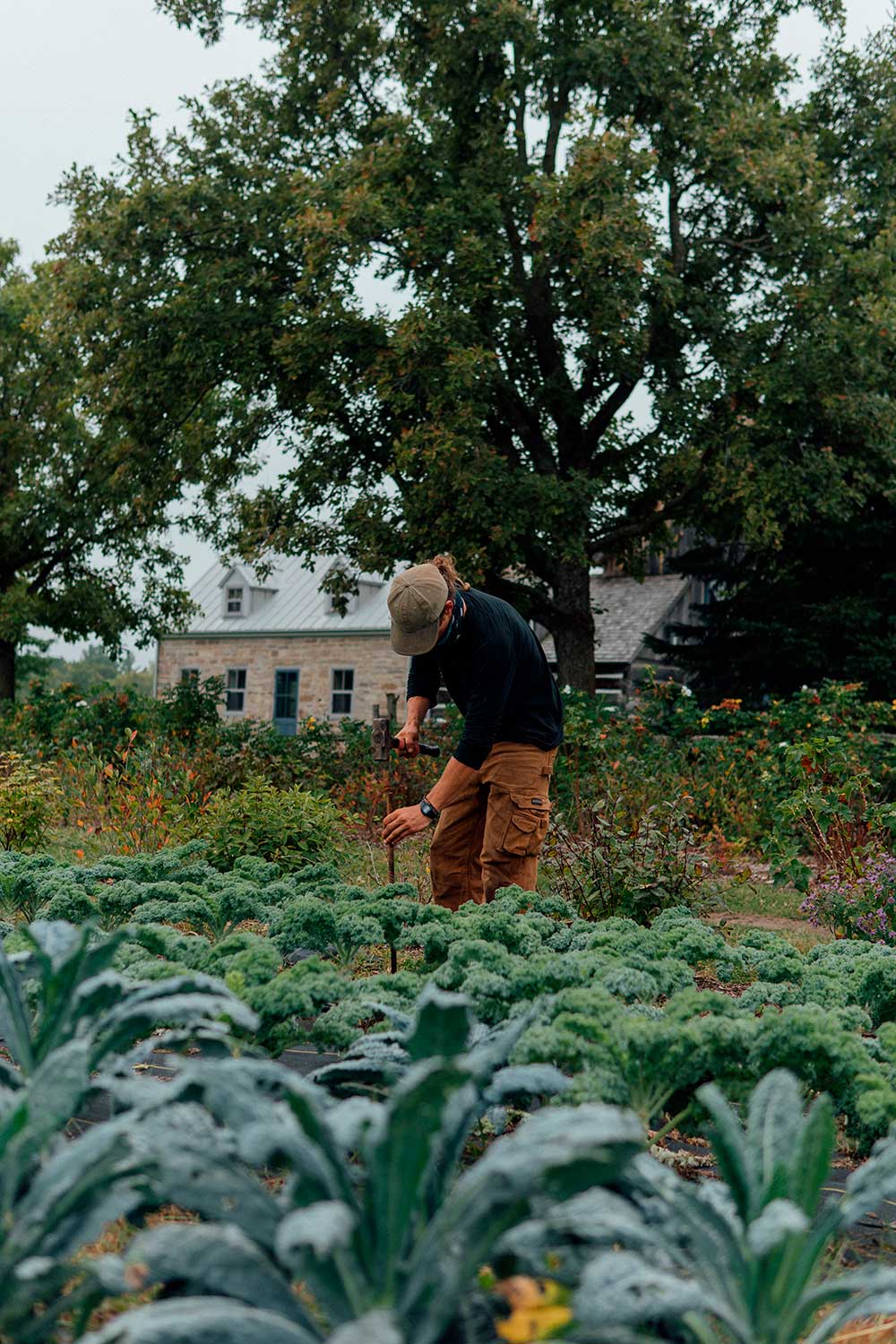
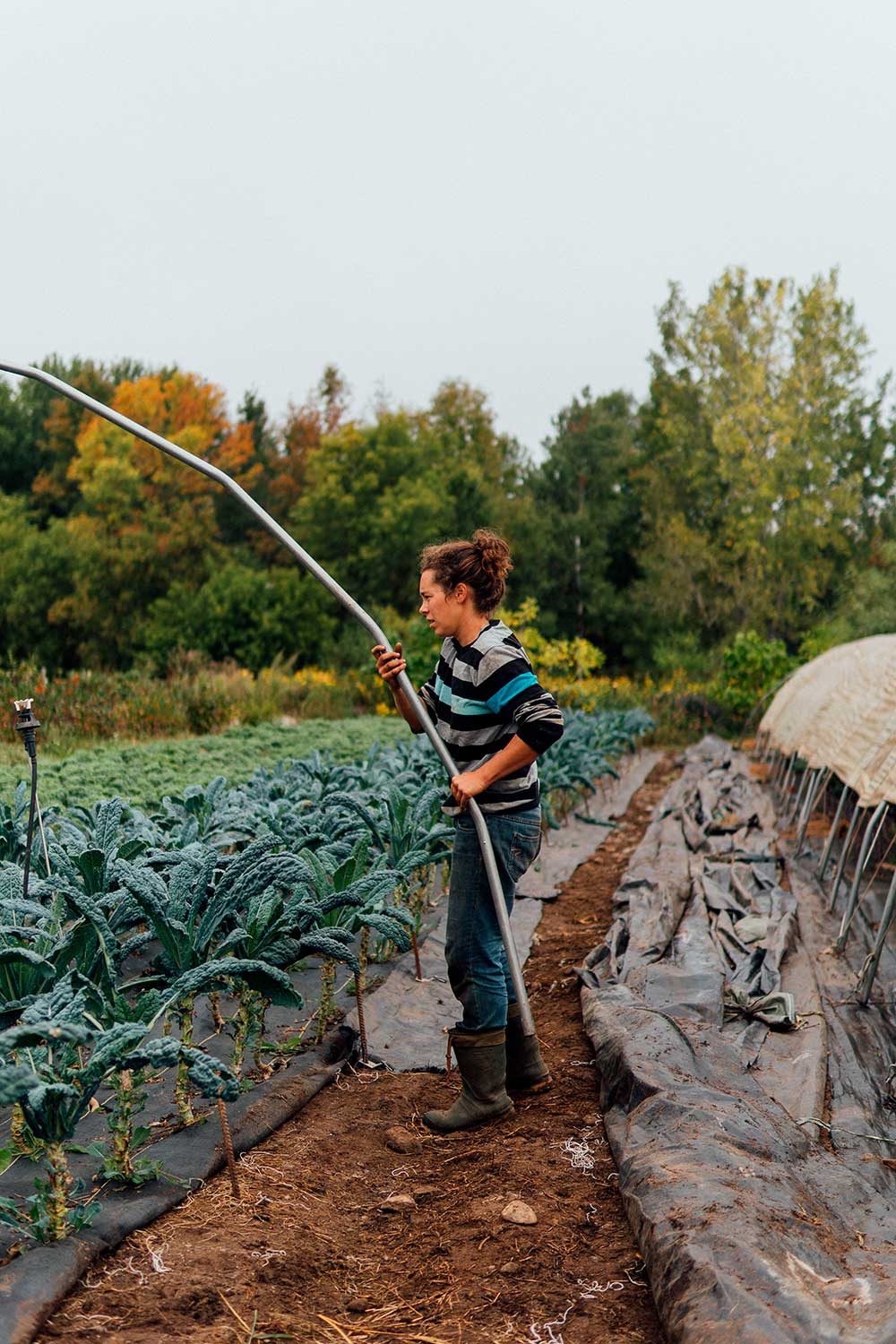
Human Scale for Healthier Crops
I have been farming organically and profitably on a small acreage for over 15 years. The future of agriculture that I envision does not require an engineering degree, but simply an open heart and a willingness to work for change. This future will be ushered in by people who feel compelled to spend their days outdoors, with hands and feet in the dirty ground, working directly with the forces of nature and making a tangible contribution to the well-being of their communities.
As farms have been growing larger, and as aging farmers struggle to motivate younger generations to inherit their industrialized, mechanized, and capital-intensive farming operations, we are seeing a wave of smart and dedicated young people who are reinventing what it means to be a farmer.
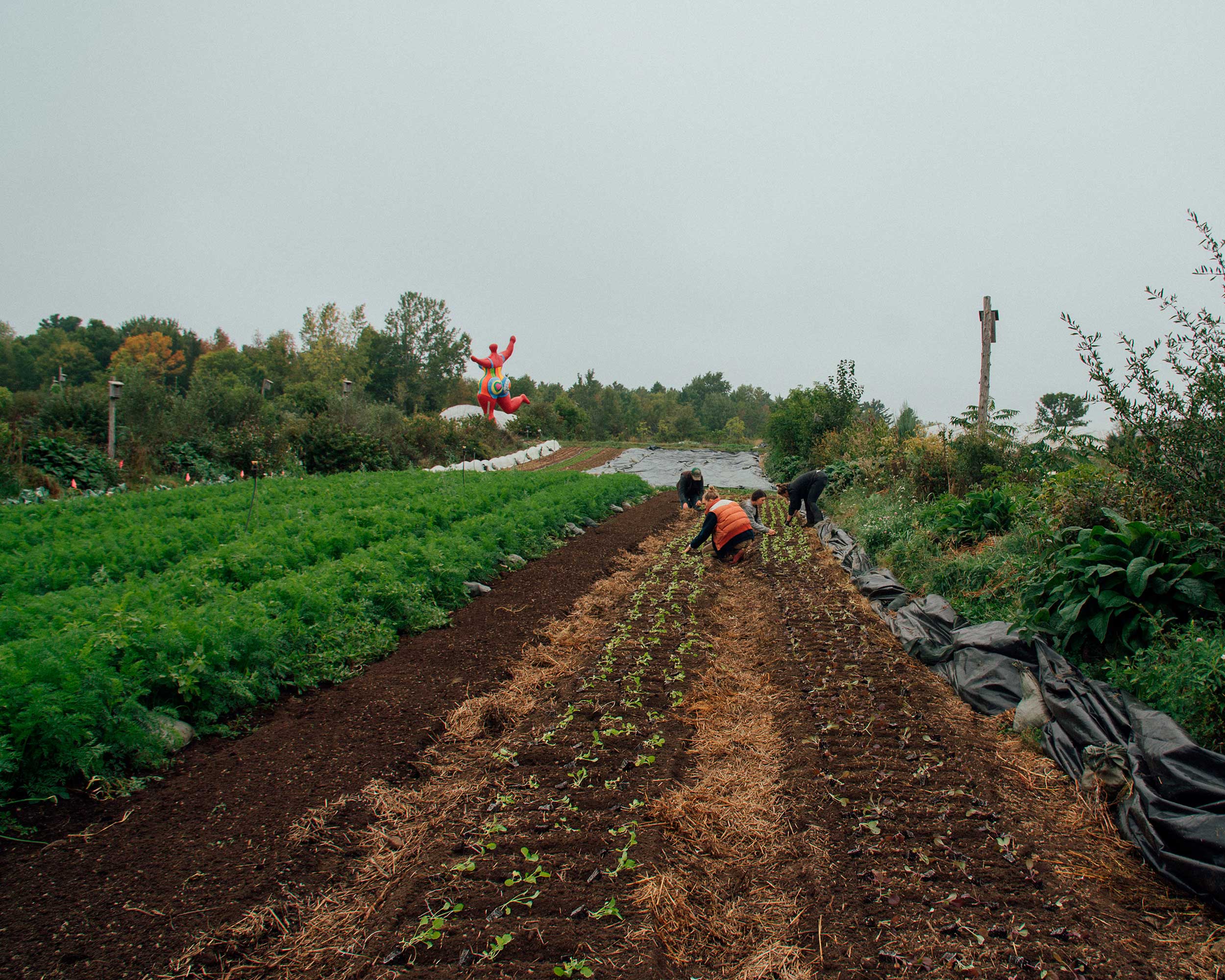
On my farms, I practise what is called biointensive farming, which means that the goals of our practice are to increase the biology in the soil and work with natural forces to achieve maximum yields on small surfaces.
I like to call myself a professional “Earthworm Habitat Builder,” because the more earthworms I see, the more alive and fertile I know my land is.
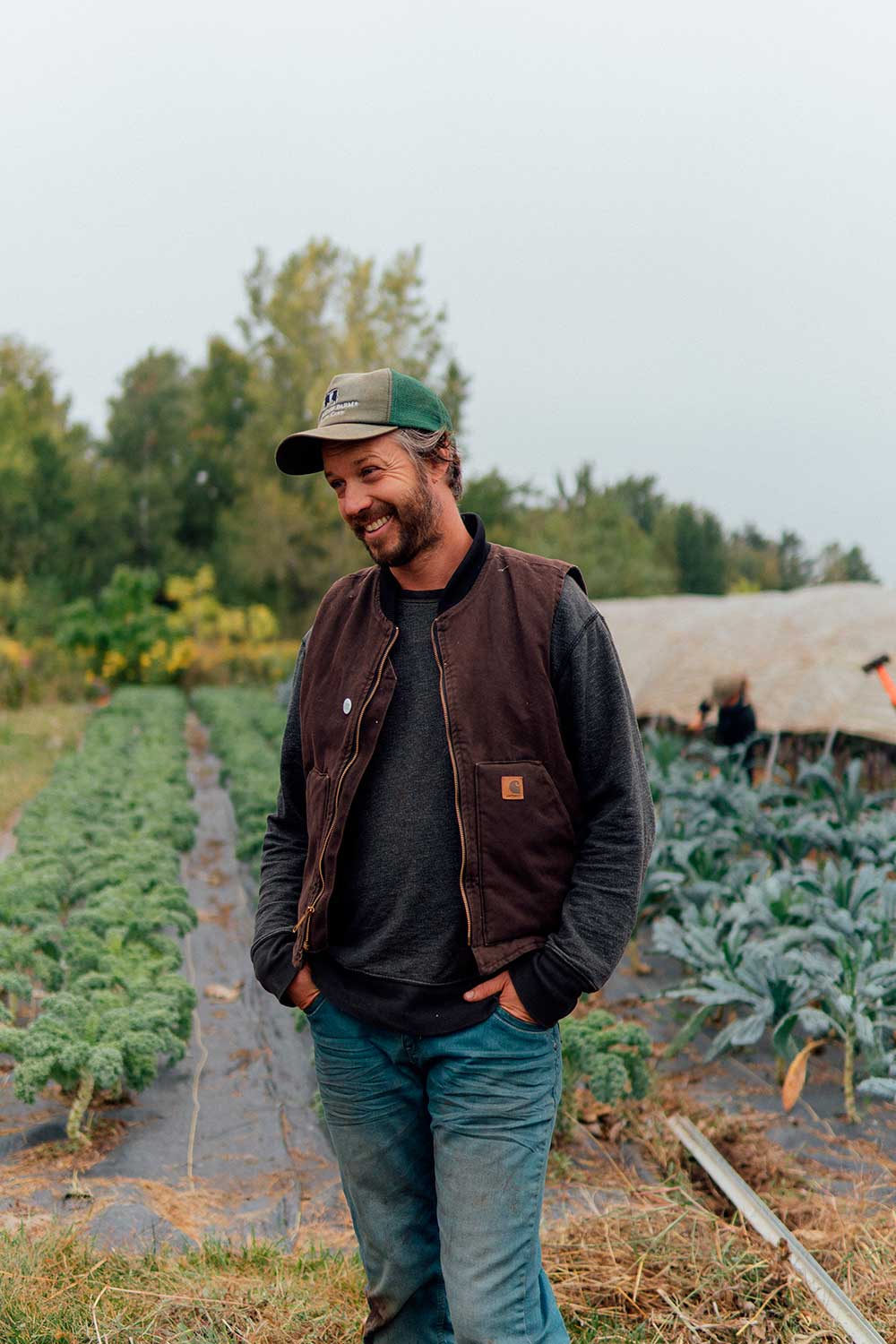
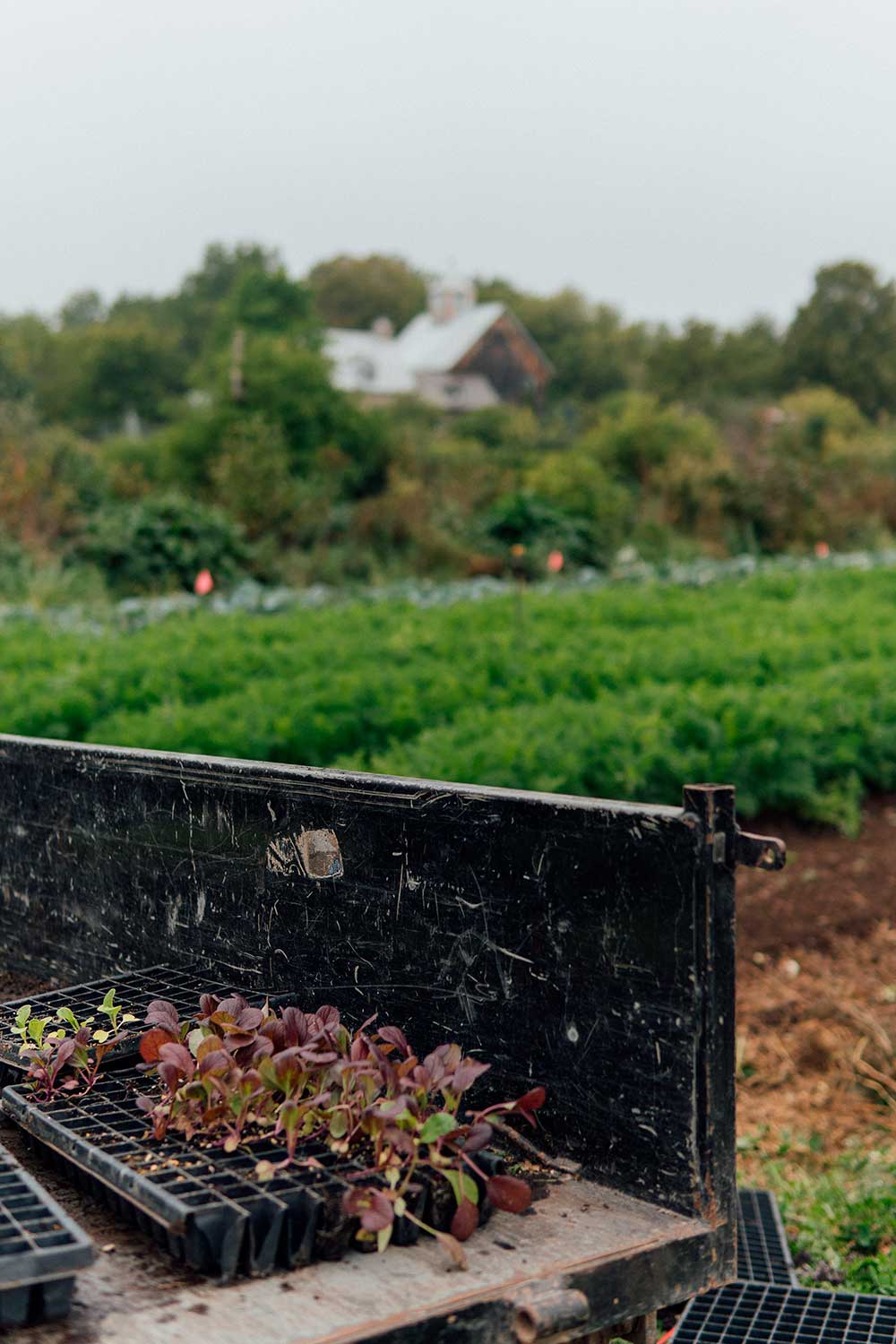
To promote the concentration of organic matter, we follow a few simple but powerful principles. First, we build permanent raised beds. Once these are established, we never turn over the soil, and this keeps intact the web of life that is housed within. We also plant our crops close together to create a canopy that shades out the weeds and provides earthworms with the cool and dark environment they love—a living mulch.
Another keystone aspect of our farming method is that it is humanscale, meaning that the design of the farm, the layout of the beds, the distance between installations, the tools, systems, and methods are all designed based on the scale of the people working on it. In contrast to industrial farming, which revolves around the tractor, we aim to optimize farming operations to create a functional and beautiful habitat for the farmers.
Farming is hard work. But it is also meaningful work. Every week, when I bring my produce to the farmers’ market, I receive thanks from grateful customers who understand the value of food grown with care. It warms my heart and keeps me going during the week when things get tough—through rain, wind, and drought.
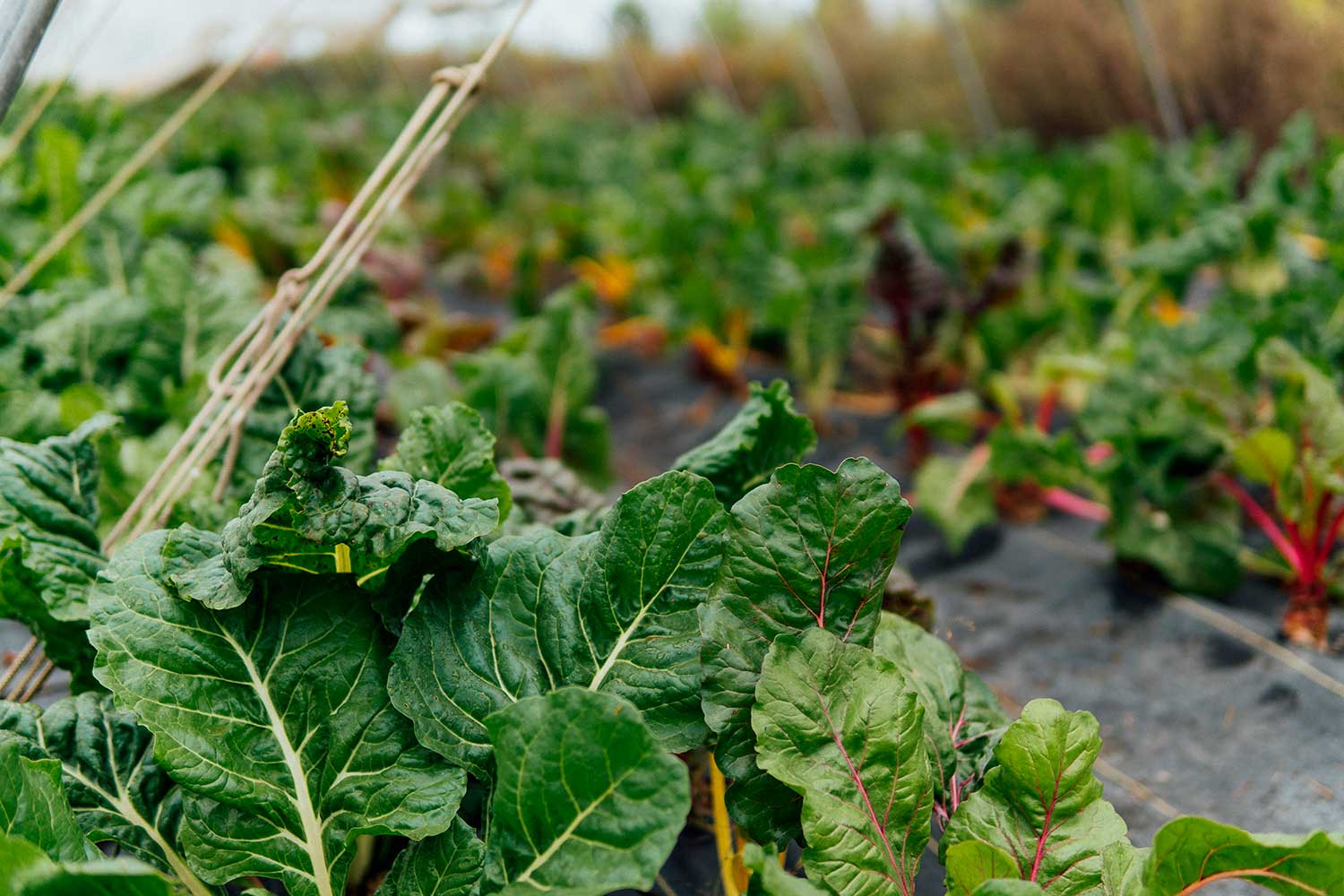
Learning from others, including nature
Being able to feed people healthful food truly is a revolutionary act.
If 70 per cent of your life will be spent working, how do you want to spend it? Do you want to have hard but satisfying work or simply go along to get along?
Do you want to spend your days in front of a computer screen or be outside with plants, flowers, birds, and butterflies? Is there not more to your life than earning money and having a false sense of security?
When I was young I wanted to change the world. I studied Environmental Science, travelled, planted trees, picked mushrooms, built natural buildings, and worked on coffee plantations. But when I discovered farming, everything finally clicked into place.
My partner Maude-Hélène and I were travelling in New Mexico when we met a French-Canadian farmer who grew vegetables on a small acreage and sold them at a local farmers’ market. We later interned on his farm, and I saw how simple and beautiful this life was: we would work the land during the week and bring vegetables to market on weekends. We also brought in a decent income. People thanked us and said they included us in their daily prayers.
Farming satisfied my desire for meaningful labour—growing food for my community was something I could be proud of—and it met my need to be outside in the elements, where I could learn from nature. I had found my place.
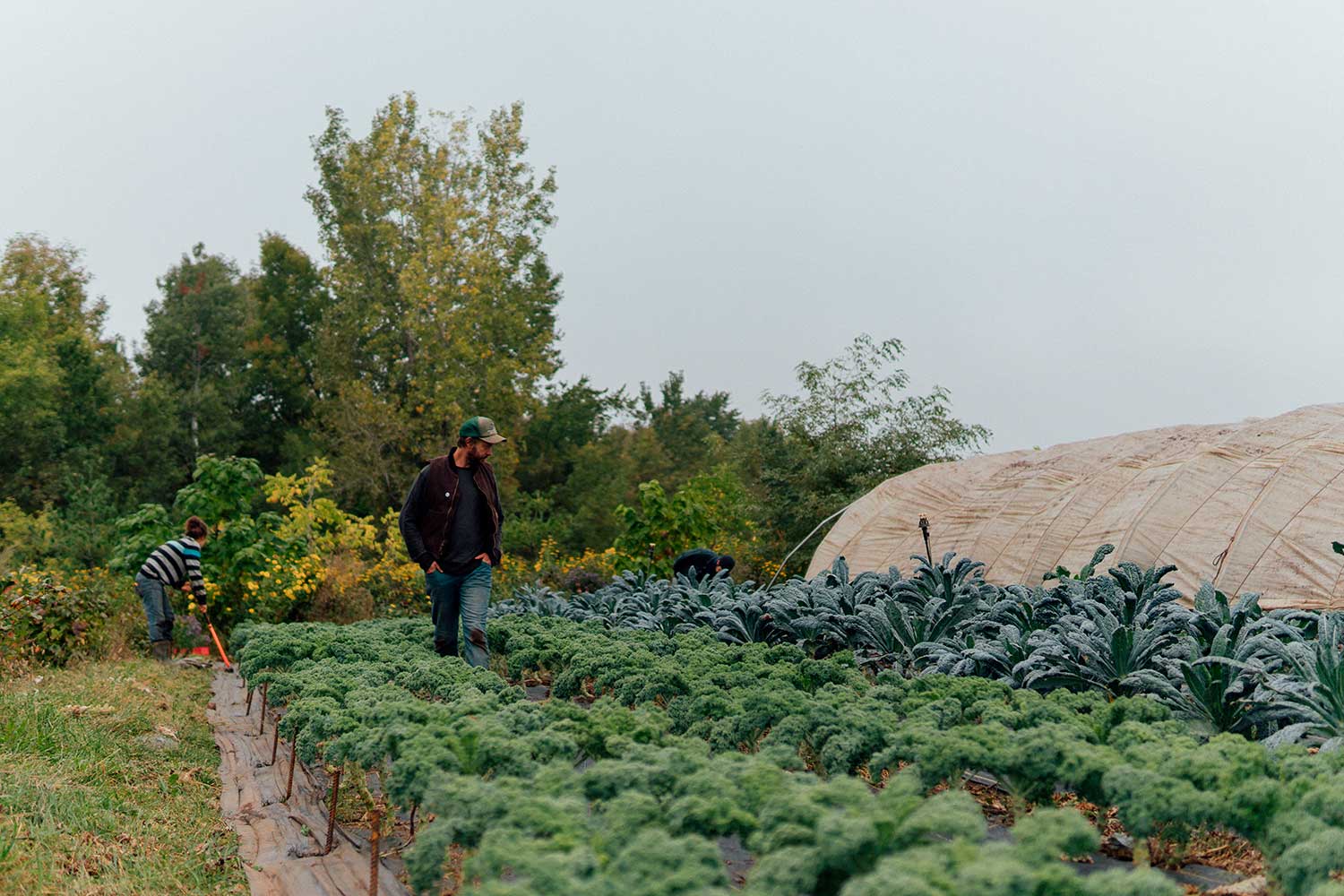
When we came back to Québec, we started farming on rented land while living in a teepee with our baby son. We worked hard and made a lot of mistakes. We learned a lot from direct observation and also from those who had come before us. We read tons of books and travelled as much as we could to visit farms and meet people who would become our mentors, such as Eliot Coleman, an organic farming pioneer based in Maine who single-handedly revolutionized small farming practices and made them profitable.
We bought our farm, Les jardins de la grelinette, 15 years ago, and over the years it has become an example of what a productive microfarm could be. Wanting to share this beautiful trade and lifestyle with others led me to write my book, The Market Gardener, which has gathered a community of support beyond anything I could have imagined. I believe that the book resonated with people because it provides not only a complete model for farming, but also a way forward for those who long for a life closer to the earth.
All of this eventually led to my current project, La Ferme des Quatre-Temps, which is an experimental farm founded by wealthy philanthropists here in Québec with the goal of demonstrating what the farm of the future could be. While I initially hesitated to take the project on, I realized that it was an opportunity to train a larger group of young people to carry the flame of microfarming forward. Some of them have already gone on to start their own farms and innovate in their own ways.
The new farmers
As I continue to travel around the world, teaching others about the farming model we’ve developed, I meet bright young people who are excited to join this good food and good life revolution. Some of these young farmers have even abandoned successful careers to start their own farms and learn this trade.
Some are former mountain bikers, surfers, skaters, and snowboarders. Others used to be jurists, engineers, or high-earning construction workers who became inspired to start farming after reading a book, watching a TV show, or attending a conference.
Some started small, with a one-acre market garden, selling vegetables directly to their friends and family. Others established larger, diversified farming operations that include animals, fruit trees, bee colonies, and flowers. Some sell their products through community-supported agriculture (CSA) subscriptions, and others directly to chefs and restaurants.
Each farmer faces different challenges. But we are unified by our mission to work with the forces of nature rather than fight them with chemicals. And we all have to build our customer base the same way: one relationship at a time.
We meet individuals at local farmers’ markets; we show up to local restaurants with crates of produce; we speak to chefs and ask them about their needs; we become known by everyone in our local community.
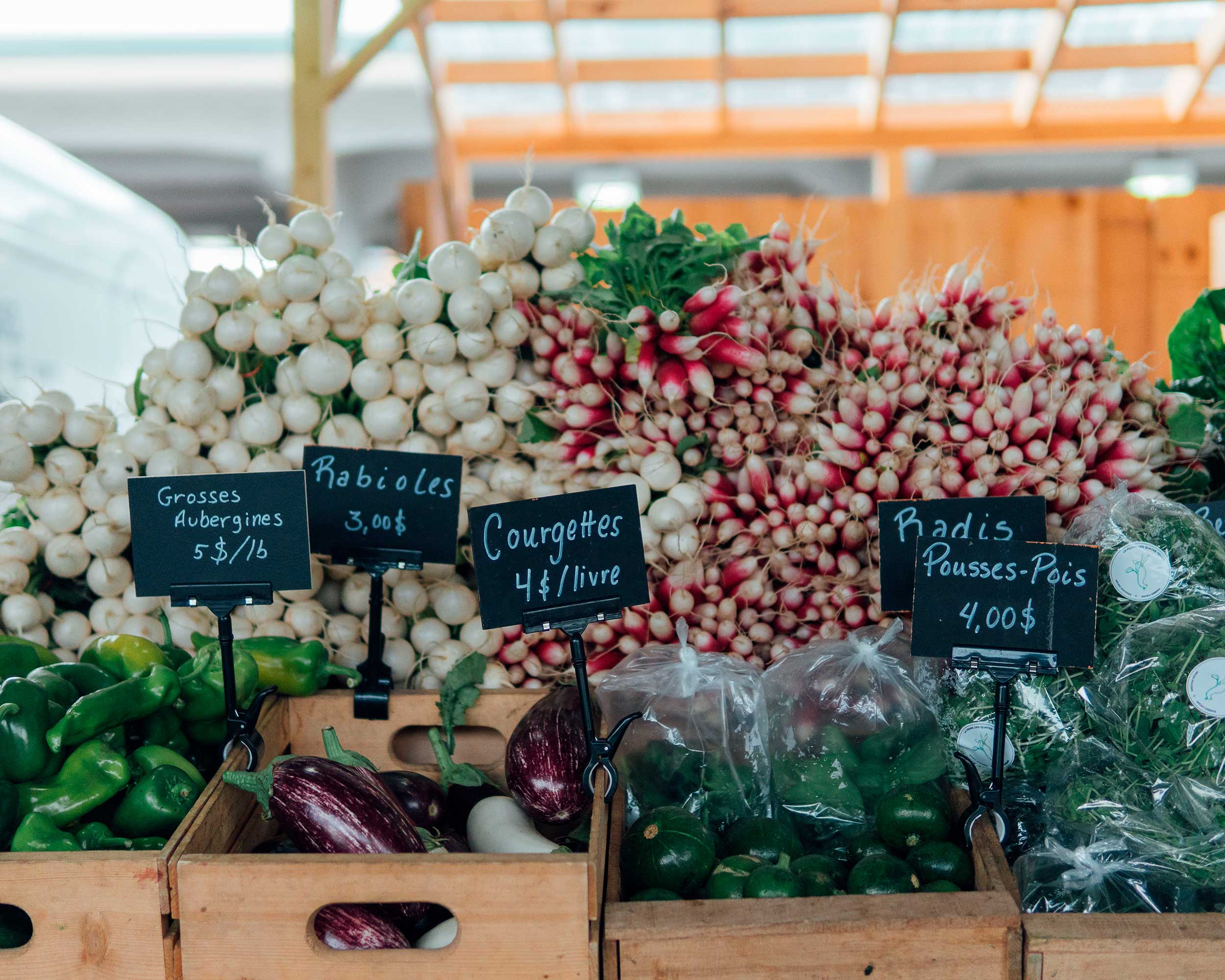
To build this agricultural future, we need to inspire, educate, mentor, and empower a generation that is desperately seeking an alternative lifestyle, one that will bring them closer to nature and farther from the agricultural-industrial complex.
We need to share the beauty and bounty that comes from people who care to grow food for people who care to see, taste, smell, and feel the difference of food grown with care. Anyone who in any shape or form has felt this calling: you are part of this movement.
The future of food is you and me.
Jean-Martin Fortier is a farmer, educator and best-selling author specializing in organic and biologically intensive vegetable production. His award-winning book, The Market Gardener, has inspired hundreds of thousands of readers worldwide to reimagine ecological human-scale food systems. He is the co-founder, with his wife Maude-Hélène Desroches, of the micro-farm Les jardins de la grelinette and the farm director at Ferme des Quatre-Temps, in Southern Quebec. In 2017, he launched The Market Gardener’s Masterclass, an online course for professional growers with his business partner Suleyka Montpetit.


